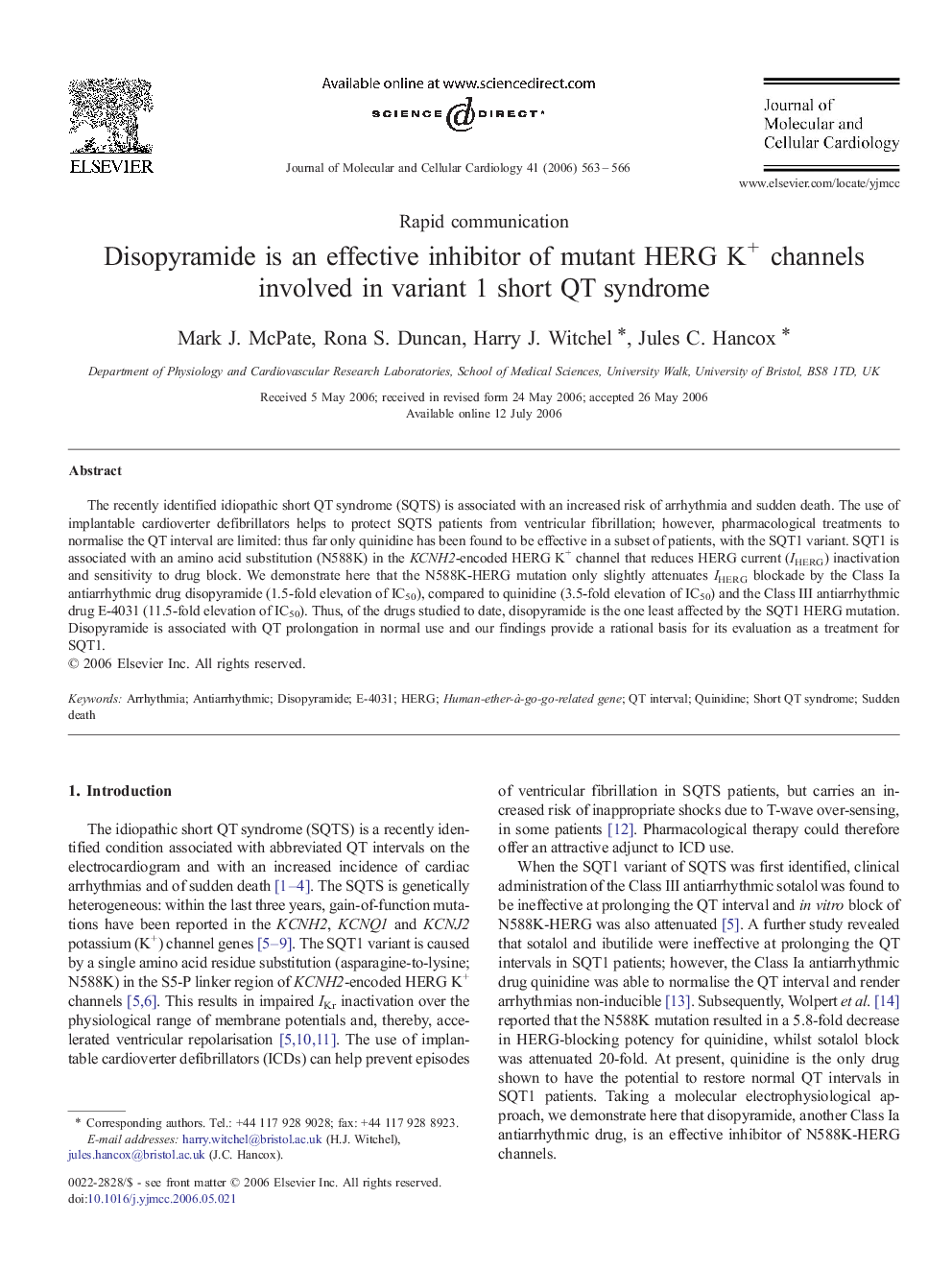| Article ID | Journal | Published Year | Pages | File Type |
|---|---|---|---|---|
| 2192312 | Journal of Molecular and Cellular Cardiology | 2006 | 4 Pages |
The recently identified idiopathic short QT syndrome (SQTS) is associated with an increased risk of arrhythmia and sudden death. The use of implantable cardioverter defibrillators helps to protect SQTS patients from ventricular fibrillation; however, pharmacological treatments to normalise the QT interval are limited: thus far only quinidine has been found to be effective in a subset of patients, with the SQT1 variant. SQT1 is associated with an amino acid substitution (N588K) in the KCNH2-encoded HERG K+ channel that reduces HERG current (IHERG) inactivation and sensitivity to drug block. We demonstrate here that the N588K-HERG mutation only slightly attenuates IHERG blockade by the Class Ia antiarrhythmic drug disopyramide (1.5-fold elevation of IC50), compared to quinidine (3.5-fold elevation of IC50) and the Class III antiarrhythmic drug E-4031 (11.5-fold elevation of IC50). Thus, of the drugs studied to date, disopyramide is the one least affected by the SQT1 HERG mutation. Disopyramide is associated with QT prolongation in normal use and our findings provide a rational basis for its evaluation as a treatment for SQT1.
